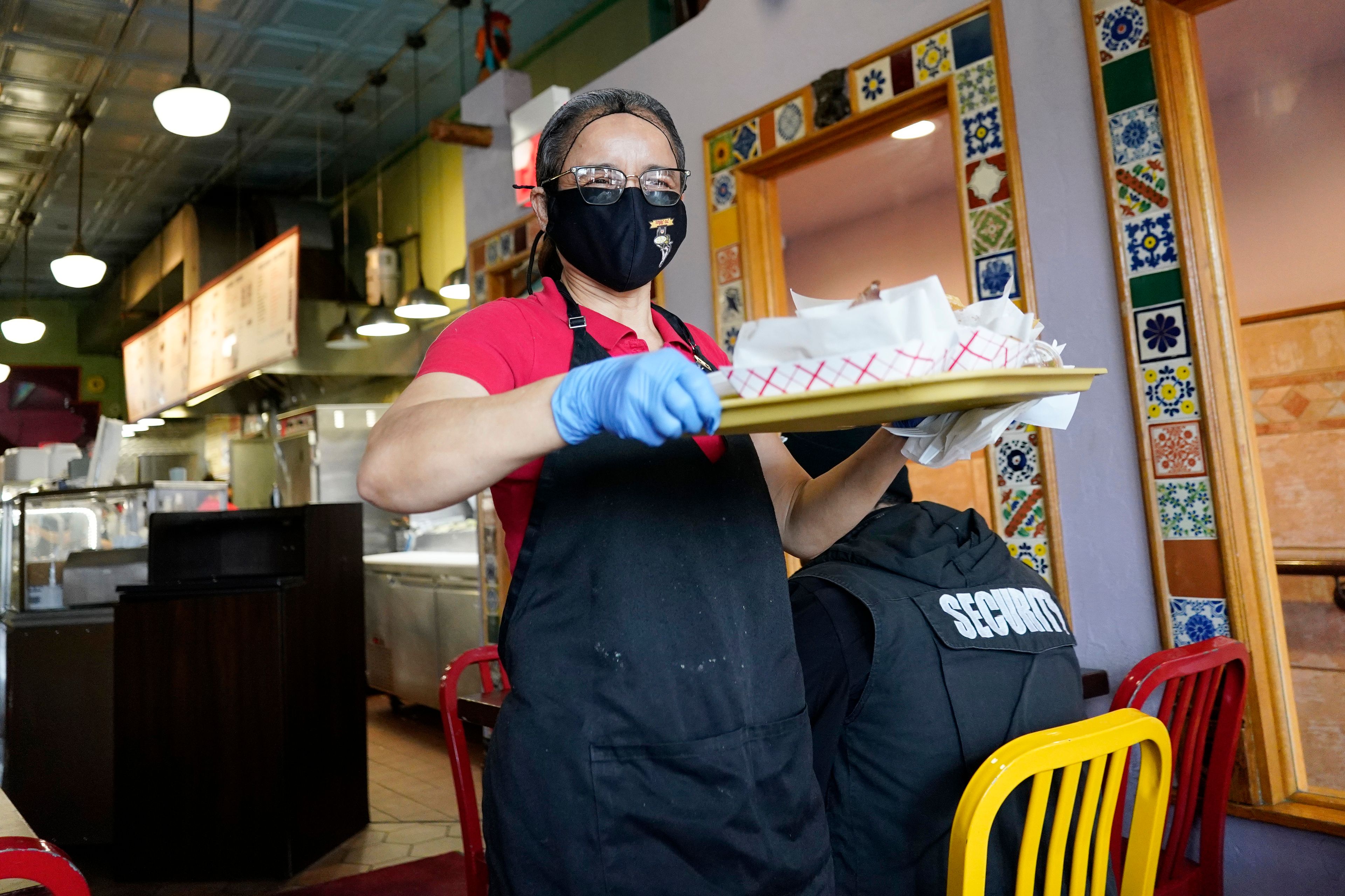Paying homage to the past
Dippel family’s history preserved for posterity on StoryCorps podcast
When National Public Radio subsidiary StoryCorps put out the call for regional stories this summer, Iris Holway-Price and Gary Kendall stepped right up.
Actually, Holway-Price had to be dragged to the microphone. As for Kendall, he had already planned to make audio recordings through a Whitman County program, preserving his family’s rich agricultural history on the Palouse and the surrounding area. He’d done much of the groundwork, combing through family diaries and archiving photos, and he jumped at the StoryCorps invitation. But this tale needed to come from his aunt, the family matriarch.
Holway-Price, 93, eventually was persuaded. But she fought the jitters right up through the end of the July 24 recording session, done from the comfort of her Palouse home.
The process was guided remotely by the StoryCorps crew who, they report, were wonderful.
“They’re well-organized, they’ve done it so many times ... they’re professionals,” Kendall said. “This is a real good project. NPR has done a heck of a good job here.”
But the best part of the experience for Holway-Price? “It was over,” she deadpans.
“It made me quite nervous,” she said. “It was OK, but I probably would’ve done a better job a couple of years ago.”
The digitized StoryCorps recording is an engaging chat between Holway-Price and Kendall, as interviewer, about the family’s origins and life on the prairie. It can be found at archive.storycorps.org/interviews/iris-holway-price-and-gary-kendall/?tm=1750.
Kendall, 83, who lives on his family’s farm between Palouse and Potlatch, opens the conversation by introducing Holway-Price and himself: “I’m her favorite nephew.”
Then her opening line: “This is kind of a tribute to my mama and dad.”
So begins a 43-minute gallop down memory lane. It begins in 1902, when Holway-Price’s parents — then unknown to each other — along with many other German Russians were fleeing Katherine the Great’s oppressive rule for a new start.
Alex Dippel traveled by himself from Saratov, Russia, at age 16, to Ellis Island, N.Y., then headed across country to Colfax. There, he threw his energy into learning how to farm.
His future bride, Anna Marie Scheuerman was 12 when she traveled from Yagata, Russia, with her family, to Pittsburgh, Pa. They contracted measles on the monthlong voyage, and two sisters died of pneumonia soon after arrival. The family worked about three years at a packing house to repay an uncle for their passage; then they settled in the Colfax area, where her father found work as a mail carrier at Dusty, Wash.
Dippel and Scheuerman married in 1908 in Colfax. Neither was educated, but they taught themselves to speak, read and write English.
“I don’t know how they did it,” Holway-Price says on the podcast. “They were really something to accomplish what they did. And they were so happy in America — they loved America.”
Her dad became a U.S. citizen in 1930, and her mother the year after.
They had eight children, including daughter Evelyn, who fell ill shortly after her first birthday and died while they were bringing her to the doctor by carriage.
The grief was almost too much for Anna Dippel.
“It was a very sad thing, and my dad had to finally scold mama because she was just a mess,” Holway-Price said. “And he finally told her, ‘Mama, you’ve got to straighten up, because you have all these other children to raise.
“It was a tough time, and she’d just lost two of her young sisters to pneumonia.”
Holway-Price’s other stories on the podcast flesh out happier aspects of prairie life: hard-but-rewarding farm work, tight bonds formed among friends and family, and a good bit of mischief, such as the time she cut class — incurring the wrath of the “best teacher I ever had.”
“I was with some friends that had some older sisters, and one day they decided we were gonna go skip school and see ‘Gone with the Wind.’ And we did.
“And then I guess, when we were gone, (the teacher) was just ranting and raving and, ‘Their diplomas are going to be gone with the wind,’ he said. ... Scared us to death.”
He took away recesses instead, she said. “So we came out alright. And ‘Gone with the Wind’ was well worth anything. It was a beautiful show.”
During her fifth- and sixth-grade school years, she and her school-age siblings moved to town when bad weather set in for the winter. “And that was kind of hard sometimes — we had to be away from our parents, and sometimes we had to eat at one house and sleep at a different one.”
The people who took them in were always kind, she told Golden Times.
“Very nice — people used to be nicer than they are now. They treated us real well.”
The podcast includes colorful sketches of Holway-Price’s siblings, such as Bill, a self-taught auctioneer who bought a half interest in the Twin City Sales yard in Lewiston.
“We had to change from horse farming to tractor farming,” Holway-Price recalled, “And you could hear Bill practicing his auctioneering above the tractor. He really cared for it. And he worked hard to get there.”
He was an amazing man, she said. “All of my brothers and sisters were.”
There’s a nod to the lack of amenities: No gravel roads, no electricity, a two-hole bathroom toilet up on the hill with catalog pages for toilet paper.
“That’d come in handy here,” Kendall wisecracks, “because they’ve been having trouble finding toilet paper this last year. They should’ve gone back to the old Sears-Roebuck catalog, shouldn’t they?”
And there’s a fascinating description of a house moved from Garfield to a ranch near Yellow Dog, when Alex Dippel turned the Farmington-area farm work over to his sons and semi-retired (see the family picture at XXXX).
Iris married Tom Holway, and they had three daughters: Linda Swan, Cheryl Krieger, of Pullman, and Tami Slonaker, of Nampa. Holway-Price also had 20 happy years with her second husband, Charlie Price, a gunsmith and master engraver who died in 1997. She moved in with Swan three years ago, from her home across the street in Palouse.
Swan’s main contribution to the recording is what listeners won’t hear. “I was kind of keeping everything quiet,” she said, as her mom and cousin delved into the past.
Swan also comes in for a mention on the podcast during the family’s barkeep days.
“I got stuck running a bar for 5 years,” as a side business near Potlatch, Holway-Price said. “It was a lesson in psychiatry. ... But we decided, when it was all over, that it wasn’t as bad as we thought it was.”
One evening stands out in Holway-Price’s memory: Swan was home helping out, and she dished out some straight talk to one of the Y Inn’s regulars.
“Every time he’d come in, it was the same story, and I just got tired of it, I guess,” she told Golden Times.
Fed up, she told him: “If you would spend as much time with your wife as you do here at the bar, you’d probably have a better relationship.”
The family said a great deal of preparation went into the StoryCorps podcast, and they were impressed with how slick it went, given the coronavirus strictures. Team members checked internet connections in early July, then went over with the family how the process would work a week before the recording session. Kendall and Holway-Price spent much prep time outlining the main material they hoped to cover.
Kendall, who has years of public speaking experience from a career in cattle sales and advertising offered encouragement and advice for others thinking about recording their family histories.
“Get yourself in the frame of mind that you’re just visiting with someone,” he said. “And if you make a mistake, you know, it can be fixed.”
He also recommends keeping a diary. He uses 5-year diaries, which he says have only about three lines to fill out every day.
“I don’t know why more people don’t do it. They’ll wish they did it when they get older,” he said. “There’s so many times that we wish we would’ve recorded how things were when we were kids, and how things were with our parents and grandparents.”
For Holway-Price, as nerve-wracking as recording experience was, “time ran out, and I had some more things to say,” she said.
“We’re all thankful she did (the recording),” Swan said, “because now we have her history and her voice there for everyone.”
ABOUT STORYCORPS
What it is:
StoryCorps is an independently funded 501(c)(3) organization.
Stated mission:
To preserve and share humanity’s stories in order to build connections between people and create a more just and compassionate world.
Core principles:
1. The interview session is at the heart of StoryCorps. We treat participants with the utmost respect, care and dignity.
2. StoryCorps maintains a relentless focus on serving a wide diversity of participants.
3. StoryCorps is a public service.
How to participate:
StoryCorps gives people of all backgrounds, typically two at a time, the opportunity to record meaningful conversations and archives the recordings at the Library of Congress. Find more information by clicking on the “Participate” tab at storycorps.org.
— StoryCorps website, storycorps.org


















